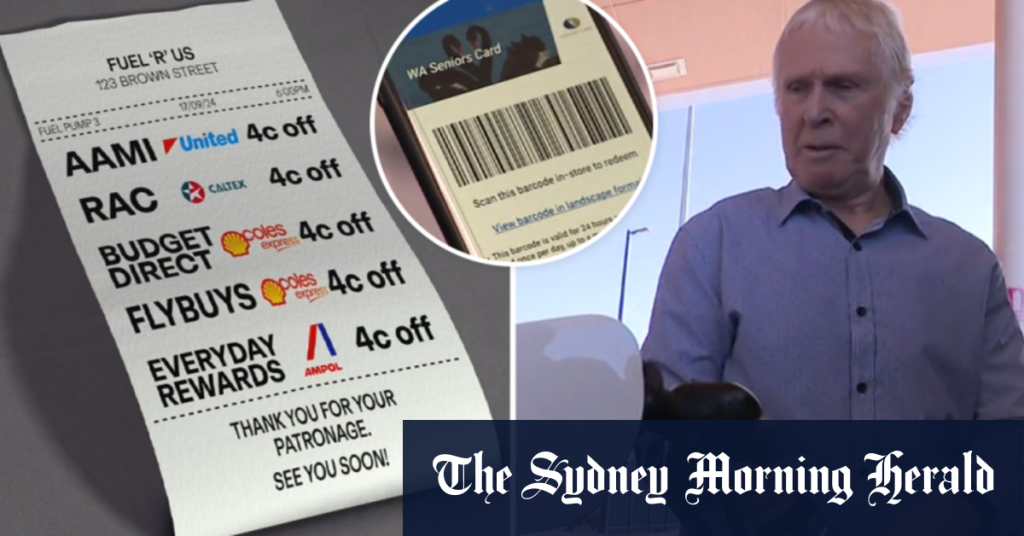The Western Australian government is facing criticism over a new senior fuel discount that offers four cents off per litre of petrol at certain outlets. The measure, which was announced recently, has received mixed reactions from the public and opposition groups. Some argue that it is a welcome relief for seniors who may be struggling with the cost of living, while others believe it is a short-sighted solution that does not address the underlying issues of rising fuel prices.
Proponents of the senior fuel discount argue that it will provide much-needed financial assistance to seniors, many of whom are on fixed incomes and may be struggling to keep up with the increasing cost of fuel. The discount can help seniors save money on their daily commute, grocery shopping, and other essential tasks that require the use of a vehicle. Additionally, supporters argue that the measure demonstrates the government’s commitment to addressing the needs of the elderly population and providing targeted support where it is most needed.
However, critics of the senior fuel discount argue that it is a superficial solution that does not address the root causes of rising fuel prices. Instead of offering short-term discounts, they argue that the government should focus on long-term strategies to stabilize fuel prices and reduce the cost of living for all residents, not just seniors. Some critics also point out that the discount may disproportionately benefit wealthier seniors who own vehicles, while low-income seniors who rely on public transportation or walk to get around will not see any benefit.
The backlash against the senior fuel discount has put pressure on the Western Australian government to reevaluate its approach to addressing the cost of living for seniors and all residents. Critics are calling for a more comprehensive strategy that includes measures to reduce fuel prices for everyone, not just seniors. They are also urging the government to consider the impact of its policies on vulnerable populations and ensure that any discounts or subsidies are targeted to those who need them most.
In response to the criticism, the government has defended the senior fuel discount as a practical and targeted measure to provide immediate relief to seniors who may be struggling with the cost of fuel. They argue that the discount is a simple and effective way to support seniors without the need for complex bureaucratic processes or eligibility criteria. The government also highlights the positive impact that the discount can have on seniors’ daily lives and financial well-being, emphasizing the importance of providing targeted support to vulnerable populations.
As the debate over the senior fuel discount continues, it remains to be seen how the Western Australian government will respond to the criticism and whether any changes will be made to the measure. Whether the discount will be expanded to include other demographics or modified to address concerns about its effectiveness and impact remains uncertain. In the meantime, seniors and residents alike will continue to navigate the challenges of rising fuel prices and the broader issue of affordability in Western Australia.













